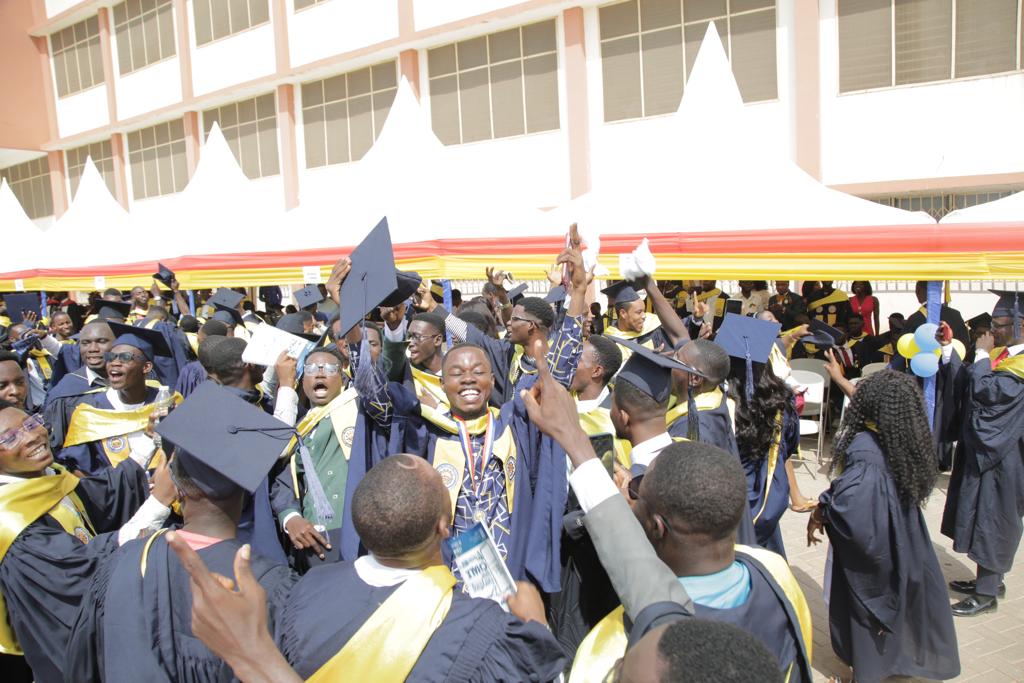By Mildred Siabi-Mensah
Takoradi, Dec. 21, GNA – The Takoradi Technical University has trained 4, 311 new professionals in various disciplines to supplement the manpower needs of the country.
The fresh professionals from the 2021/2022 academic year included eight Masters, 2, 710 National Diploma Holders, 531 Diplomas and 1, 013 Degrees.
Dr. Samuel Amo Tobbin, Chairman of the University Council at the Seventh Congregation ceremony, urged the new talents to be disciplined, work with integrity as good name was better than riches.
He said the University’s was of the conviction that Technical Education was the most effective instrument to improve the lives of people and develop our communities.
“And your Education also remains the most effective tool to bridge the inequality gap in our society. It is through education that we can give full expression to the rights enshrined in our Constitution and our vision is to build and equip students with the skills and capabilities to thrive in a modern economy and the consciousness to contribute to a better society,” the Council Chairman added.
He, therefore, urged the graduands to be adaptable to change, “after your degrees have been conferred on you today, you soon will join the myriad of past glories you may have in your closets; what will matter to yourself, and society at large will be the application of these academic laurels so conferred on you to the realities of life more meaningfully.”
Dr. Tobbin also advised them to explore all possibilities and potential influencers …” the University dares you to aim high, confident and be productive as these qualities are required in the working environment to shape the challenging world we are in today.”
The Chairman reported that the council in the academic year under review transacted businesses with the sole aim of projecting the university as a world class Technical University recognized for excellence.
Some of the notable developments included the completion of the ‘Oduro Block,’ new strategic plan, academic and administrative reforms, and human resource development, among others.

He also talked about the progress of work on the 152 acres of land acquired in the Ahanta East Municipal Assembly for the purpose of TVET programmes and stated that phase one had been completed and the installation of equipment on-going.
The project funded by African Development Bank and COTVET have workshops, lecture theatre, library, staff accommodation and administration and is expected to host the Faculty of Engineering beginning January 2023.
As part of the vision to expand facilities at the University health center, the council has approved major renovation of the facility to include functional pharmacy, laboratories, OPD, wards, among others to make it accessible to the general public.
Dr. Yayra Dzakadzia , who read the Education Ministers speech, commeneded management of the University to continue to work hard to improve upon the efforts to partner the government to transform the country.
He said the government had also intensified efforts to transform the face of TVET, especially at the secondary and tertiary levels…”in the last six years, the government has implemented much needed programmes and policies to improve and equip learners with skills required to Participate in the current industrial revolution.
Dr. Dzakadzia encouraged the fresh professionals to be good ambassadors of the University as they served in various professional capacities across the country.
Reverend Professor John Frank Eshun, Vice-Chancellor of the University, said by their training, the needed practical skills had been given…”You have what it is to think outside the box and bring your ingenuity to bear in this era of recession.”
He reminded them of their roles as drivers of Ghana’s industrial growth…”use your skills to create jobs.”
The University, he announced, was collaborating with GOIL, to set up a fuel station to augment the income generation efforts of the University.
He mentioned the establishment of a university basic school and a relaxation centre, among other initiatives for continuous improvement.
The Council in the academic year approved a scholarship scheme to assist needy but brilliant students as part of the university’s corporate social responsibility.
Another development, the VC stated as the virtual learning or blended learning policy and the use of e-learning which played a role in the achievement of the University’s goals and at the same time in fulfilment of the national ICT policy in providing e-learning practices that are flexible, responsive and effective to meet the needs of all its learners.
GNA